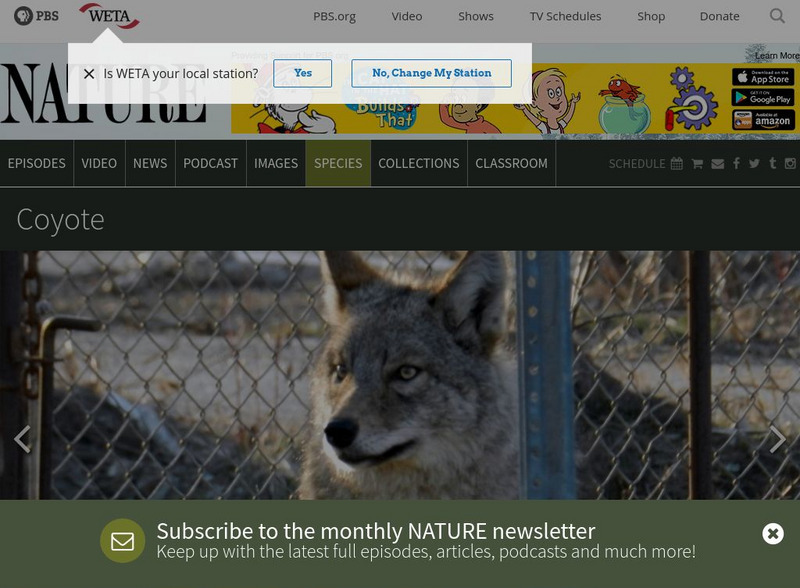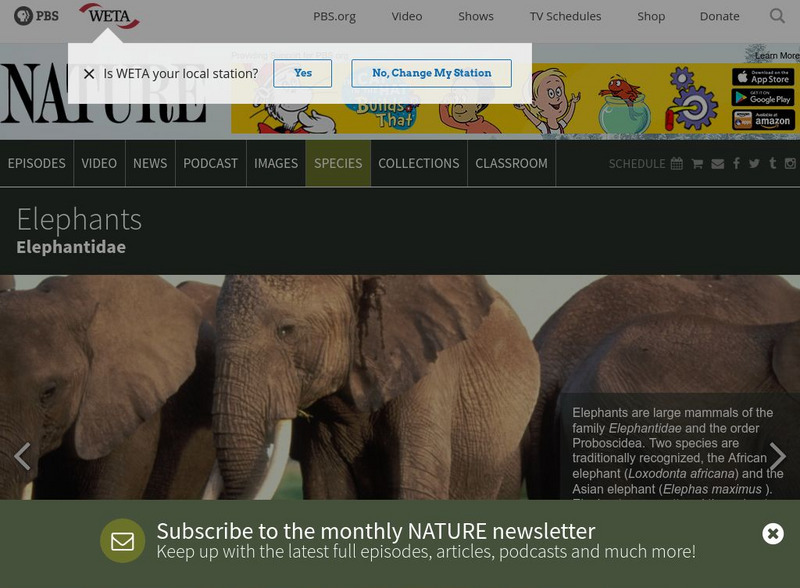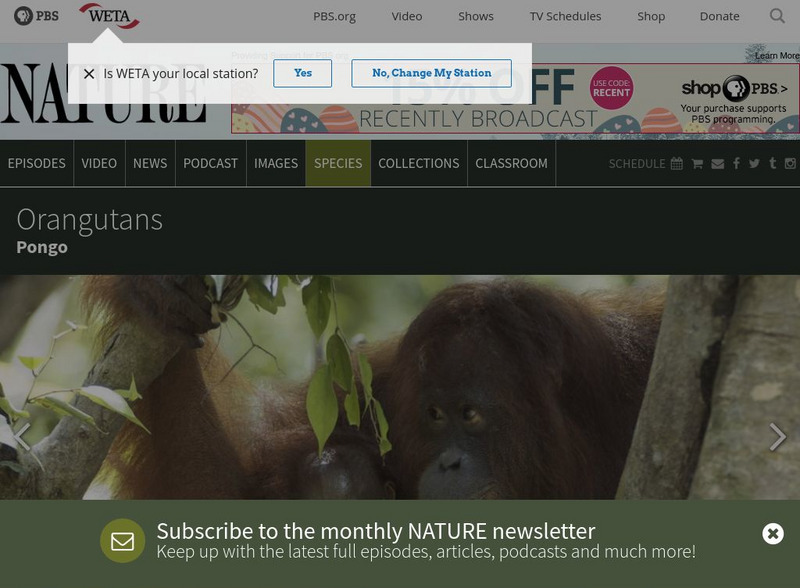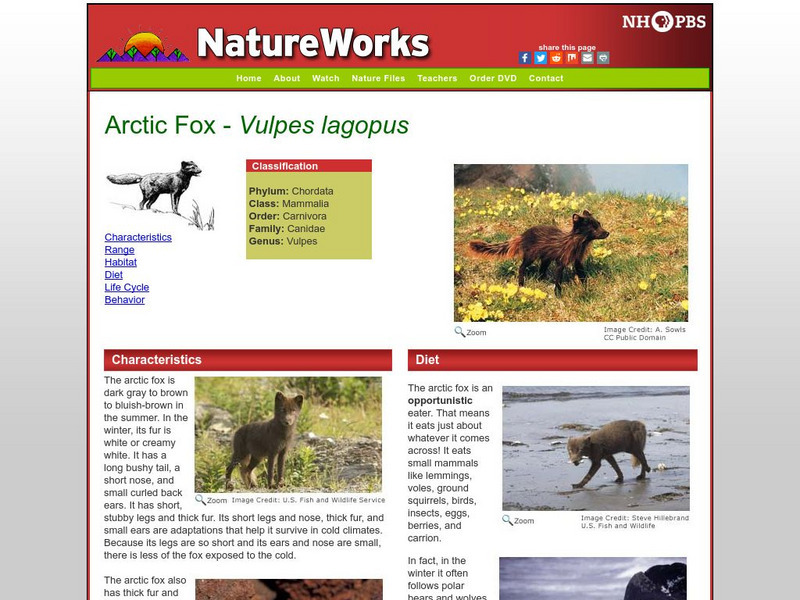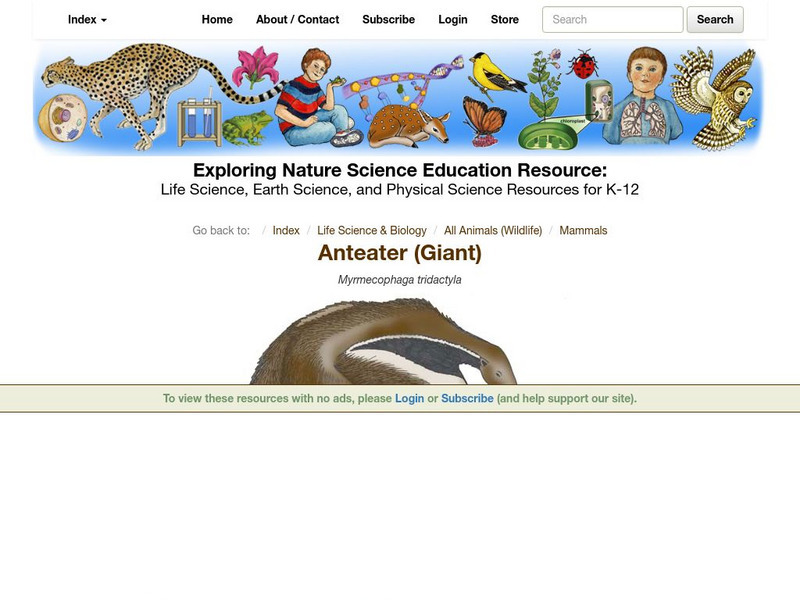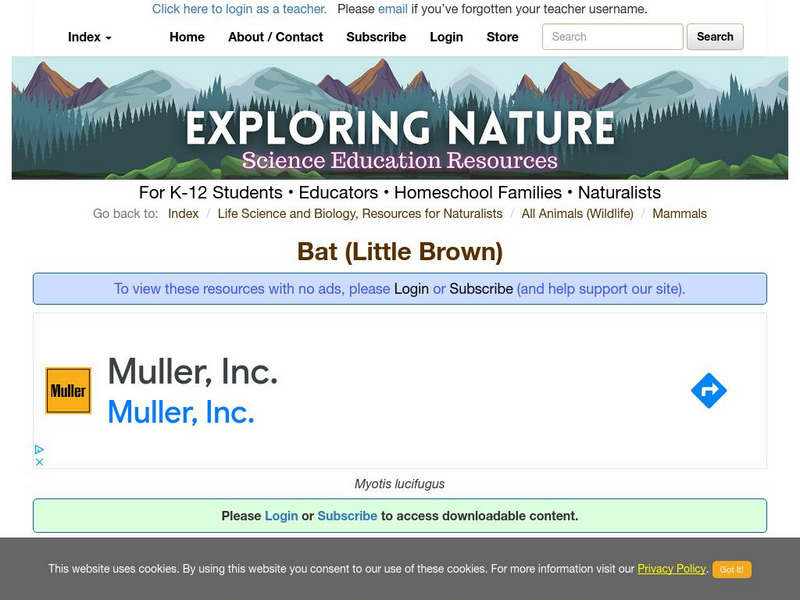Texas Instruments
Can You Breathe Like a Pinniped?
Young learners compare the breathing patterns of different animals in this pinniped lesson. They examine the breathing pattern of California sea lions and northern elephant seals. Pupils collect, compare and analyze data concerning...
Curated OER
What Kind Of Mammal Is It?
Students describe the characteristics of a mammal. They also differentiate between a companion and a wild animal. The lesson has an assessment included in it. They have a discussion to tap prior knowledge about what a mammal is.
Curated OER
Science Talk about Mammals and Reptiles/Amphibians
Third graders use the internet to research mammals, reptiles and amphibians. They list important items about their chosen animal. Students identify characteristics of an animal and where they live. They classify animals as a mammal,...
Curated OER
Walking Whales
Eighth graders explore the theory of evolution of whales. For this walking whales lesson students study a reading packet, divide into groups and respond to given questions.
Curated OER
Lion
In this lion worksheet, students explore the group, order and characteristics of a lion. They discover where the lion lives, its lifespan, and general facts about the "king of the jungle." Students then color a picture of a lion. This is...
Curated OER
African Elephant
In this African elephant worksheet, students discuss facts about the elephant, its lifespan, food it eats, its height and weight. Students then color a picture of the elephant. This one page color sheet contains one picture to color.
Encyclopedia of Earth
Encyclopedia of Earth: Evolutionary Biology: Mammal
Article explaining the basic characteristics of mammals, their diet, reproduction, behavior, conservation concerns, taxonomy, and their evolution. (Published: September 23, 2010)
PBS
Pbs Nature: Dolphin
Explore the world of marine life through the eyes of dolphins when you visit this clear and concise resource. This site features information on where and how dolphins live and other fun facts. Teachers can use this type of site to help...
PBS
Pbs Nature: Coyote
What do you know about coyotes? Learn more about how adaptable this animal is to new surroundings when you check out this informative resource. Explore this website to find more facts and information ranging from what these animals eat...
PBS
Pbs Nature Critter Guide: Giraffe
Did you know that giraffes are vegetarians? You can find out some more interesting facts and information about giraffes when you visit this resource.
PBS
Pbs Nature: Elephants
Did you know that the elephant is the largest animal in the world? Discover more about where they live, what they eat and how they socialize when you visit this site.
PBS
Pbs Nature: Orangutans
Come and check out this awesome resource on orangutans. Students who need help narrowing their informational search will benefit from this clear and concise resource.
PBS
Pbs Nature: Zebra
Learn about the natural history of the zebra in text and images, a relative of the horse that inhabits the Serengeti in East Africa and other parts of Africa.
PBS
Nh Pbs: Nature Works: Arctic Fox
Learn more about the arctic fox through this clear and concise site. This resource features photos, characteristics, behavior information and more about this fascinating mammal.
Exploring Nature
Exploring Nature Educational Resource: Armadillo (Nine Banded)
Discover where armadillos live, their body traits, diet, lifespan, reproduction patterns, and complete classification.
Exploring Nature
Exploring Nature Educational Resource: Bear (Black)
Explore the habitat, body traits, diet, reproduction patterns, lifespan, and classification of the black bear.
Exploring Nature
Exploring Nature Educational Resource: Bear (Grizzly)
Learn basic facts about the grizzly bear, where they live, what they eat, their reproduction patterns, their life span, and classification.
Exploring Nature
Exploring Nature Educational Resource: Bear (Polar)
Explore facts about polar bears, including where they live, what they eat, what they look like, and complete classification.
Exploring Nature
Exploring Nature Educational Resource: Bobcat
Learn basic facts about bobcats, where they live, what they eat, their reproduction patterns, their life span, and classification.
Exploring Nature
Exploring Nature Educational Resource: Antelope (Saiga)
Learn about the antelope's body structure, where they live, how they eat, and how they are classified.
Exploring Nature
Exploring Nature Educational Resource: Aye Aye
Explore facts about the Aye Aye, a type of lemur. Find out where they live, how they eat, their body structure, and their reproduction patterns. Full classification is also included.
Exploring Nature
Exploring Nature Educational Resource: Anteater (Giant)
Learn how the anteater eats, where they live, how they reproduce, and how long they live. Also learn how their body traits allow them to survive.
Exploring Nature
Exploring Nature Educational Resource: Bat (Red)
Explore facts about the red bat, including their habitat, body traits, diet, life span, reproduction traits, and complete classification.
Exploring Nature
Exploring Nature Educational Resource: Bat (Little Brown)
Learn basic facts about the little brown bat, where they live, what they eat, their reproduction patterns, their life span, and classification. A video of a live bat shows and explains its unique body traits and their functions. [1:26]










